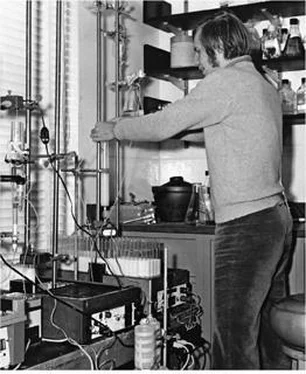James Watson - AVOID BORING PEOPLE - Lessons from a Life in Science
Здесь есть возможность читать онлайн «James Watson - AVOID BORING PEOPLE - Lessons from a Life in Science» весь текст электронной книги совершенно бесплатно (целиком полную версию без сокращений). В некоторых случаях можно слушать аудио, скачать через торрент в формате fb2 и присутствует краткое содержание. Жанр: Биографии и Мемуары. Описание произведения, (предисловие) а так же отзывы посетителей доступны на портале библиотеки ЛибКат.
- Название:AVOID BORING PEOPLE: Lessons from a Life in Science
- Автор:
- Жанр:
- Год:неизвестен
- ISBN:нет данных
- Рейтинг книги:5 / 5. Голосов: 1
-
Избранное:Добавить в избранное
- Отзывы:
-
Ваша оценка:
- 100
- 1
- 2
- 3
- 4
- 5
AVOID BORING PEOPLE: Lessons from a Life in Science: краткое содержание, описание и аннотация
Предлагаем к чтению аннотацию, описание, краткое содержание или предисловие (зависит от того, что написал сам автор книги «AVOID BORING PEOPLE: Lessons from a Life in Science»). Если вы не нашли необходимую информацию о книге — напишите в комментариях, мы постараемся отыскать её.
AVOID BORING PEOPLE: Lessons from a Life in Science — читать онлайн бесплатно полную книгу (весь текст) целиком
Ниже представлен текст книги, разбитый по страницам. Система сохранения места последней прочитанной страницы, позволяет с удобством читать онлайн бесплатно книгу «AVOID BORING PEOPLE: Lessons from a Life in Science», без необходимости каждый раз заново искать на чём Вы остановились. Поставьте закладку, и сможете в любой момент перейти на страницу, на которой закончили чтение.
Интервал:
Закладка:
2. Run a benevolent dictatorship
I was appointed to provide a vision for Cold Spring Harbor's future, not to persuade existing staff members to share it. A research institution cannot ultimately be a democracy. Still, a wise autocrat takes the trouble to sell his program. I never made appointments without seeking informal counsel among relevant scientists already at Cold Spring Harbor. And in time, most new appointments arose from their sponsorship by scientists already there. To my knowledge, I never appointed anyone not wanted by others on our staff.
3. Manage your scientists like a baseball team
Sports and top-quality research have much in common. The best stars of each are young, not middle-aged, though occasionally someone older than forty can still be a formidable force either across the net or at the blackboard. No one can long remain a science manager unless constantly on the prowl for talented rookies able to move the game to the next level. Research institutions that let the average age of their staff creep up inevitably become dull places. Lowering your average age by constructing new buildings to create more space, however, is not the way to go. If the older buildings are not exuding vitality, they become mere financial drains. Equally important, good managers see the need to retire scientists who are no longer hitting home runs. Only individuals who continually reinvent themselves through new ways of thinking should enter middle age still part of your staff.
4. Don't make midseason trades
Once you have hired a scientist, give him or her an honest chance to hit the ball over the fence. Grand slams usually come only after a player has put in three to five seasons. Treating your players according to who's got the hot hand from one week to the next only drives down overall self-confidence. Consistency and steadfastness are the way to get the best out of your players. In this regard, handling the science of others is radically different from doing your own. As a scientist, you can profit from frequent quick course changes until the right path becomes clear.
5. Only ask for advice that you will later accept
Don't second-guess advice you've sought from a colleague whom you highly respect. If a smart friend advises you to hire one of his or her best students or postdocs, consider it a lucky break and just do it. Conversely, never ask advice from someone with an outlook on science alien to your own; people they recommend will share their values, not yours.
6. Use your endowment to support science,
not for long-term salary support
Generally, a bare minimum of any research institution's funds should go to salaries for older scientists. Under normal funding circumstances, those who have remained successful invariably get adequate research grants to cover themselves and then some. Revenue generated by the endowment is best used to support scientists at the beginning of their careers, when their grant support usually is not adequate to their research needs. Science is not a welfare state: feeding the young until they can feed themselves serves the greater good, while failing to cull the herd does not.
7. Promote key scientists faster than they expect
By promoting your best performers rapidly, you necessarily reduce money that might be given to those whose work no one would miss. Be generous with those you value: a salary increase below the rate of inflation is the universal sign to start looking elsewhere.
8. Schedule as few appointments as possible
When a scientist pops into your office or calls to schedule a meeting, learn then and there what he or she wants. You can avoid wasting your time and theirs by immediately saying yes to their request for a piece of equipment or a salary slot they legitimately need to move forward with their jobs. Even if so acting means promising money you don't yet have, do it. Your purposes will be served if their worries exclusively concern getting their work done, not currying favor with you. Any scientist on the scene knew clearly where he or she stood with me; I backed everyone I wanted to stick around.
9. Don't be shy about showing displeasure
When someone working for you says something stupid or in other ways makes your blood boil, express your anger immediately. Don't go about silently seething, letting only your spouse know you are upset. That is bad for your health and really not fair to those whose behavior has offended you. They very likely already fear they are in deep shit, and would naturally want to respond to your criticism sooner rather than later. When things are left to fester, the festering takes on a life of its own, sowing unproductive distrust. The fault might even be yours. If so, apologize as fast as you flared up. Being an ass occasionally is forgivable; being unable to admit it is not.
10. Walk the grounds
Your staff will seldom come to your office to tell you of impending bad news. Only when the bough breaks do you learn the awful truth. To stay ahead, it's best to make walking the grounds a part of every day. This allows you to meet those lower on the lab's totem pole and acknowledge their existence with a smile or word of praise. Equally important is to pop in on labs in the evening or on weekends. Those populated only during weekday daylight hours are likely going nowhere, while scientists at their benches on Saturday afternoons are seldom there killing time.
15. MANNERS MAINTAINED WHEN RELUCTANTLY LEAVING HARVARD
DURING my initial years as director of Cold Spring Harbor Laboratory, I was never the Lab's primary fund-raiser. As president of the Long Island Biological Association (LIBA), Edward Pulling saw this as his role. Living scarcely more than a mile away, he frequently popped over to give potentially generous neighbors tours of the Lab. Early in 1972, Ed and his fellow LIBA directors committed themselves to raising $250,000 over the coming year. With it, the Lab would winterize Blackford Hall as our year-round dining hall, construct a second annex to James Lab for cell culture facilities, and buy a handsome Victorian house on Bungtown Road, on the way to the sand spit, for post-doc housing. Ed believed professional fund-raising help would be a waste of time and money. His acquaintances wanted only his reassurance that their money would be put to good use. My job was to be on hand when Ed had a hot prospect.
Ed was on to someone big when he saw the need to track down Liz and me on a brief late June holiday north of San Francisco. From a phone booth in Inverness on the way to Point Reyes, I confirmed that we would be there the next Wednesday when he brought Charles S. Robertson to tour the Lab. Charlie's wife had recently died, and he was looking for an institution to which to donate his estate, some ten minutes away on Banbury Lane in Lloyd Harbor. Excitedly Ed told me that some years before, the Robertsons had made the largest gift to date in the history of Princeton University: $35 million. Their wealth came from Marie's family, the Hartfords, whose one A&P grocery store in lower Manhattan spawned in just two generations some fourteen thousand more across the United States and Canada. At the start of World War II, they were the fifth wealthiest family in the United States. Charlie and Marie's gift to Princeton had been announced as anonymous, but when rumors arose that the CIA was behind the new Woodrow Wilson School of Public and International Affairs, they had to go public lest the gift be tainted.

Интервал:
Закладка:
Похожие книги на «AVOID BORING PEOPLE: Lessons from a Life in Science»
Представляем Вашему вниманию похожие книги на «AVOID BORING PEOPLE: Lessons from a Life in Science» списком для выбора. Мы отобрали схожую по названию и смыслу литературу в надежде предоставить читателям больше вариантов отыскать новые, интересные, ещё непрочитанные произведения.
Обсуждение, отзывы о книге «AVOID BORING PEOPLE: Lessons from a Life in Science» и просто собственные мнения читателей. Оставьте ваши комментарии, напишите, что Вы думаете о произведении, его смысле или главных героях. Укажите что конкретно понравилось, а что нет, и почему Вы так считаете.












